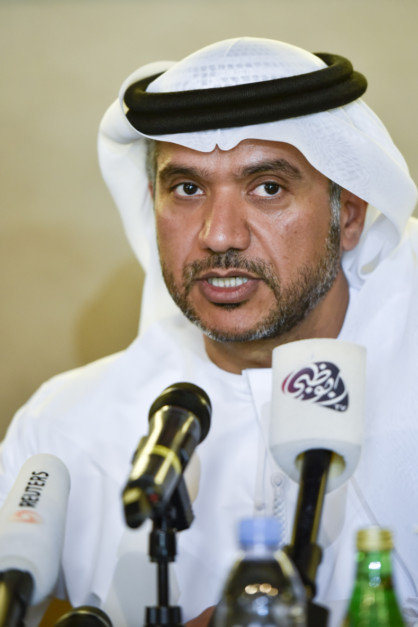
Abu Dhabi: In its drive towards creating a sustainable and green economy, Abu Dhabi is looking at the latest and most innovative technologies to help in its fight against climate change, as the emirate laid its long-term energy strategy out at the Abu Dhabi Sustainability Week.
“Technology will steer the world towards green economies as electric vehicles, storage technologies, artificial intelligence (AI), digitalisation, blockchain, machine learning and so on, gain more traction,” said Awaidha Murshed Al Marar, chairman of the Abu Dhabi Department of Energy (DoE).
“Sustainability and technology have become mutually exclusive today, as we see technology becoming more prevalent in the coming decades. DoE has made technology especially AI a high priority area for research and development to find solutions which will drive the future of energy,” he added.
Al Marar said the emirate was putting such technologies into practice, with Abu Dhabi already having set clear targets on how much electricity and water it wants to reduce by 2030.
“As we continue to diversify the energy mix by incorporating clean and renewable sources, we are also promoting energy efficiency and rationalisation of consumption.
“DoE introduced Abu Dhabi Demand Side Management and Energy Rationalisation Strategy 2030, which features nine core programmes with a high potential to reduce water consumption by 32 per cent and energy consumption by 22 per cent by 2030, as compared to 2013 consumption rates,” he added.
“These strategies are driving the emirate’s energy transition efforts with a clear focus on promoting economic growth and social development, secure and affordable supply and environmental sustainability,” he said, highlighting how going green will also have economic benefits for the emirate as it makes its energy use more efficient.
Virtual battery plant
Mohammad Bin Jarsh Al Falasi, undersecretary at the DoE, commenting on the emirate’s virtual battery plant, said the facility was providing energy storage capacity across Abu Dhabi.
“The newly launched virtual battery plant is the world’s largest grid-scale advanced battery energy storage facility. Abu Dhabi has a total deployment of 108MW in the battery plant which will provide over six hours of energy storage capacity distributed over 10 different locations in Abu Dhabi.”
Al Falasi said the project was just one of many being implemented in the emirate in an effort to provide energy in more secure and greener methods.
“Noor Abu Dhabi Solar PV plant is a fine example of Abu Dhabi’s commitment to clean energy sources. One of the world’s largest solar PV plants with an installed capacity of 1,177MW through 3.2 million solar panels, the plant is now delivering clean and renewable energy to the national grid.
“I would (also) like to mention a recent pilot project which successfully completed retrofits for eight government buildings in Abu Dhabi. Initial data has shown substantial savings with 38 per cent less electricity consumption,” he added.
“The pilot will lead the way for more such projects in our drive to make Abu Dhabi a beacon of energy efficiency. We will have a session on this project where our experts will give talk about it at length,” he said.











